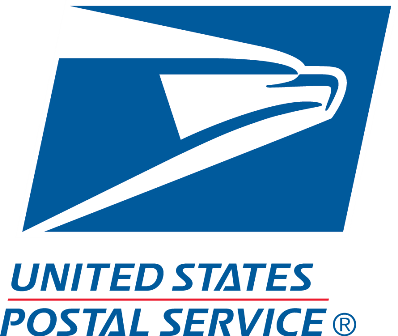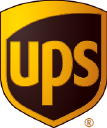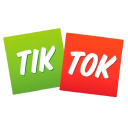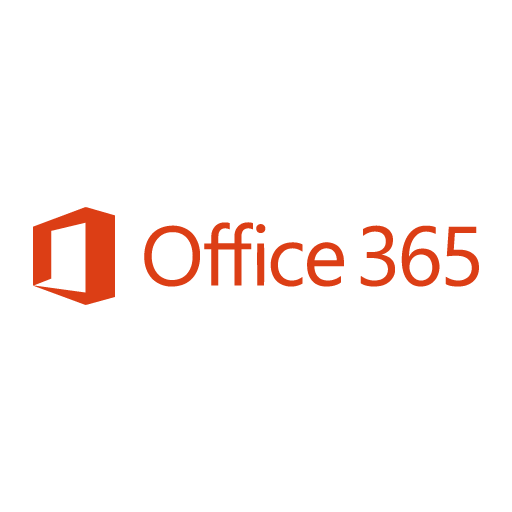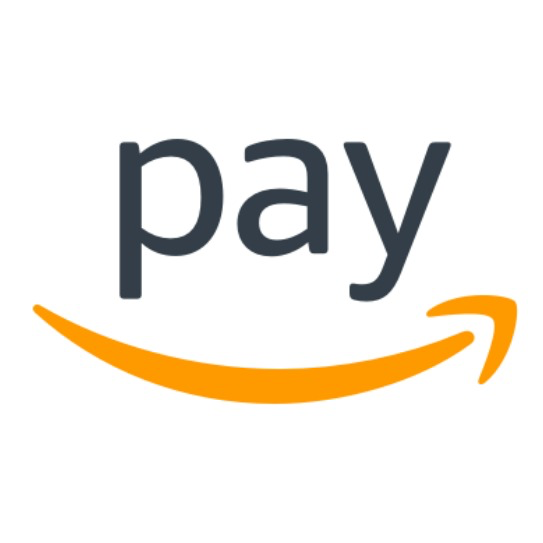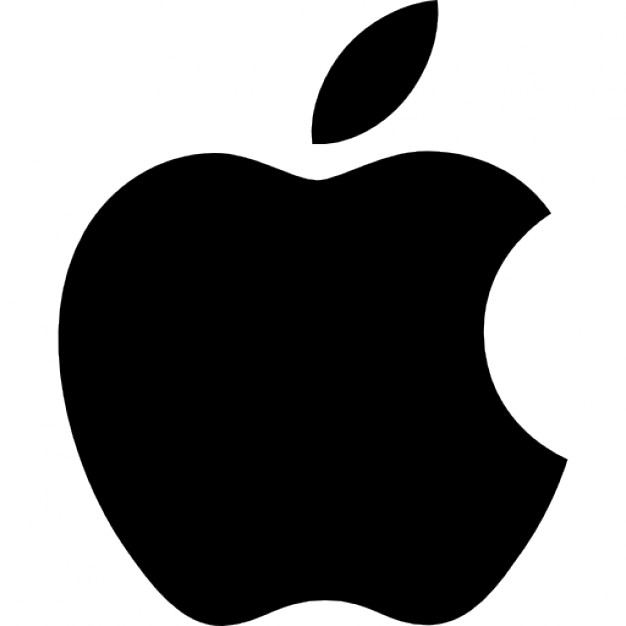
On Starting An L.A. Based Artist Management Company
My name is Jeff DeLia and my business is 72 Music Management, an Artist Management company, based in Los Angeles. I manage six artists that span blues, soul, Americana, folk, gospel, bluegrass, and roots-rock genres. My clients are A.J. Croce, The Blind Boys of Alabama, Bobby Rush, Dom Flemons, Dustbowl Revival, and Sarah Grace, and The Soul. I recently began co-managing the Blind Boys with their long-time manager Charles Driebe. Among my clients are three Grammy Award winners, roots/Gospel group Blind Boys of Alabama, blues legend Bobby Rush, and folk songster Dom Flemons.
As an artist manager, I manage the careers of these artists who are mainly full-time recording and touring artists. I oversee all aspects of their careers, seek new opportunities, field incoming invitations, and coordinate their recording projects and touring activities. I collaborate with a wide array of companies and individuals in the music business including booking agencies, record labels, publishers, entertainment lawyers, distributors, publicists, radio promoters, musicians, tour managers, music venues, recording studios, producers, engineers, managers, music supervisors, media outlets, radio deejays, journalists, television networks, and more. My clients are doing over 400 shows per year all around the world and are usually each releasing new music every one to three years.
All of my clients put on mesmerizing performances with their musical talent, storytelling, and humor, while regularly making and releasing beautiful recordings.
A.J. Croce is a singer-songwriter and boogie-woogie piano player. In 30 years he’s released ten studio albums that have all landed on the radio charts including Top 40 and Americana. He’s collaborated with many music luminaries including Vince Gill, Ben Harper, and Leon Russell. His music has been featured in numerous commercials including for Toyota and Levi’s.
The Blind Boys of Alabama are iconic torchbearers of traditional gospel. Over their seven-decade career, they have won five Grammy Awards and are Grammy Lifetime Achievement Recipients. They have performed for three U.S. Presidents and collaborated with music legends Prince, Mavis Staples, Taj Mahal, Lou Reed, Peter Gabriel, and Bonnie Raitt.
Bobby Rush is an 86-year-old Grammy-winning blues legend, Blues Hall of Famer, and crowned “King of the Chitlin’ Circuit” by Rolling Stone Magazine. Among his 77 career releases including 27 studio albums are his 1971 hit “Chicken Heads”, his Grammy-winning album Porcupine Meat, last year’s Blues Music Award-winning Sitting On Top of The Blues, and this year's acoustic blues release Rawer Than Raw.
Photos from 2018 in New Orleans at the Saenger Theater with Queens of the Stone Age and their special guest Bobby Rush;
Dom Flemons is a Grammy-winning folk songster, multi-instrumentalist, historian, musicologist, and 2x Emmy nominee. His last studio album Black Cowboys released on Smithsonian Folkways Recordings was nominated for a Grammy Award, Blues Music Award, and included in the Country Music Hall of Fame's "American Currents" exhibit.
From 2019 with Dom Flemons on the red carpet of the Grammy’s, when he was nominated for Best Folk Album;
Dustbowl Revival is a Venice, CA-based funky, soulful, and folky band who tour the world playing major music festivals and headlining esteemed venues like the Troubadour and Fillmore. Their last album 'Is It You, Is It Me' produced by Sam Kassirer (Lake Street Dive, Josh Ritter) charted high on the Americana radio chart and Billboard charts. Their music video with acting legend Dick Van Dyke is included in the HBO doc ‘If You’re Not In The Obit, Eat Breakfast.’
Sarah Grace is a 17-year-old blues and soul-pop singer-songwriter. She reached the semi-finals on The Voice on Kelly Clarkson's team, had four single releases via the Universal Republic at 15 years old, was featured on Grammy-winning soul songwriting icon David Foster’s ("Soul Man", "Hold On I'm Coming") album, and embarked on her first national tour at 16 playing for as many as 20,000 people.
What's your backstory and how did you get into entrepreneurship?
I have always felt the entrepreneurial spirit. It feels like I’ve had that drive and business mind since I was young. It could be that my late Grandmother Elaine Breger or my Uncle Darryl Friedman influenced me as well. My Grandma started one of the first market research businesses of its kind from her basement in the late 1970s while raising three children as a single mother. She sold Friedman Marketing about ten years later after it had expanded into 26 U.S. states. As a young man, I saw the drive and success my Uncle had with his company Desert Beach Specialties, an embroidery and screen printing business based in Tucson, Arizona. I remember constantly coming up with new product or service ideas for new businesses with my friend Cliff in high school. We never acted on any of them but my mind was headed in that direction.
As tough as it has been for us, I hope you can find the silver lining for you, adapt, and pivot to what will become the best years of your life!
I always wanted to be around bands and music. I made friends in middle school that played music. I was playing trombone in the school band and made many musician friends that way. I always wanted to be around their bands. Even if I could just hold a clipboard and pretend to help them at their shows or in the studio, I would. At 16-years-old I solidified my career path by determining that I wanted to be an Artist Manager. I had recent business experiences helping my Dad buy the property and negotiating the deal. I had concluded that if I combine my passion for music with what felt like a savvy for business, artist/music management was the answer.
I graduated high school at 17-years-old and embarked on my journey toward a career in music. I decided the right destination to begin that journey was New York City. My sister had previously introduced me to the electricity of the city, the vibrancy, and eclectic offerings that NYC had to offer. I also knew that there were three hubs for the music business: Los Angeles, Nashville, and New York City.
My sister Jennifer, who was already well established in her career in Entertainment with films, helped connect me to my first two internships. Before I even started my school year at Baruch College, a business school in Manhattan, I had an internship with a non-profit in the Bronx called SOBRO. They offered a summer program to youth that was focused on music. I helped the Director with the program that Summer. My next internship began in the Fall working with publicist Sarah Landy in her remote office for the San Francisco-based indie record label Quannum Projects. It was there that I learned a bit about P.R. and realized that it wasn’t the path I wanted to pursue as a career, but it felt like a good idea to get experience in a variety of areas of the music business so I could be better equipped when I finally arrived at Management.
I lived in NYC for 5.5 years. In that time I co-founded a short-lived events company called Vinylive Entertainment that showcased live music and experimental art, I started and co-owned a rehearsal studio, recording studio, and events company for two years in New Rochelle, NY, I promoted shows on the Lower East Side primarily at a small venue called Fat Baby, and finally, I made it to managing a band called The Dream Station. I’m proud to say that one of my partners in the studio in New Rochelle has kept that business going, providing sound for events in the Tri-State area for 13 years, currently operating as Red Gate Sound. I did all of this while going to college part-time and working full-time in hospitality. I was able to get a job serving in a restaurant of the luxury boutique hotel Royalton Hotel in Midtown, Manhattan. They closed for renovations and I picked up a Front Desk Agent position at the boutique hotel across the street. I was promoted to Front Desk Supervisor shortly thereafter. After the recession of 2009-2010, I picked up a job as a Door Man and Concierge for a luxury apartment and condominium buildings in Manhattan. I think all of that experience did better equip me for my future Artist Management career. After deciding that Los Angeles was the next home base for me, I arrived in September 2011 with a plan to go to school full-time at Musician’s Institute and see what would come next.
I started my career in July of 2012 when I signed A.J. Croce. I was doing it full-time by October, signed two more clients by March of 2013, and started 72 Music Management at that time.
At the age of 24-years-old, it was an incredible opportunity to become the manager of an artist who had been signed to a major label, been on late-night television, toured the world, played shows with artists like Ray Charles and Lenny Kravitz, charted on the radio, and had a fan base around the world. I’m grateful that A.J. took a chance on me. He and I met through a mutual friend who we both respect deeply. I met Howard Bloom in a tea lounge in Brooklyn while I was in college, several years prior. I learned that he had helped launch the careers of Prince, Madonna, Bob Marley, and more as their publicist in the 1970s-80s. A.J. saw Howard speak on television in the 90s, was a fan of his books, and had connected with him online in recent years. I ran into Howard at a Tribeca Film Festival event in early 2012. I was interning at one of the largest artist management companies, Red Light Management, and was excited to share with him all that I was doing and the artists on their roster. He told me how moved he was by A.J.’s music that he discovered on Pandora. He said that no artist had affected his emotions and uplifted him the way A.J.’s music had. I took that seriously, checked out his music and history, and was hooked too.
It’s been a thrilling ride these last eight years as I’ve been apart of the release of 23 releases including 13 studio albums and 1 box set that I co-produced, with one Grammy Award-winning release and six Grammy-nominated projects. It’s been a blast to see my clients reach new heights with national press, placements, charts, and appearances from NPR to The Tonight Show, Netflix’s Dolemite Is My Name to HBO’s Ballers, Billboard Blues to Billboard Americana/Folk, and headlining the historic The Fillmore in San Francisco to performing at Australia’s Byron Bay Bluesfest.
Take us through your entrepreneurial journey. How did you go from day 1 to today?
As a manager these last eight years, the business has taken many turns which I consider to all be positive. Whether the outcome was a big success or it was a bust, those lessons helped me build the business stronger, and be a better manager for my clients.
A.J. Croce really helped me hone in my skills as a manager. He helped guide me through the first steps that were needed to keep his business moving and growing. There were a few key things that we got going. We booked him for a performance at a music festival conference in Austin called IMFCON, we booked him to perform at an arts/theaters conference in NYC called APAP, we secured him a new booking agent, and we began to put together his next studio album Twelve Tales, which involved connecting him to six legendary producers to record two songs each in their studio/city across the U.S.
When I started managing, I had just moved out of a room that I sublet in a house in Hollywood, and I was working in a luxury condominium building as a doorman and as a server for catered events. I was working a small number of hours, enough to give me a little extra money but not to cover all of my expenses. When I moved out of the sublet, I wasn’t sure if I would stay in L.A. or move back to NYC, so I started staying with friends. Before connecting with A.J, I had envisioned that I would take the more traditional road to my career, with going to school, an internship, working for a company, and then going out on my own thereafter. Even though I was young and in school prior, I felt like I had given the entrepreneurial approach a try and it didn’t lead me to what I was looking for. I feel like the Universe had something else in store for me. I tried to deviate from a more traditional path. I interviewed with big management companies in NYC and LA with great recommendations from within the company. I had intersected with A.J. by the time the interviews were happening and I would bring up A.J. and see if that would be a conflict for them. After a few weeks of managing A.J. I quickly realized that my side-jobs were conflicted and needed to go because I needed to be available during most awake hours in case any business emails came in, and they did. It also became clear that I was back to the entrepreneurial approach, I was going to manage full-time, on my own, and launch my own company.
By the time I decided I would pursue managing artists full-time on my own and stay in L.A, my savings was pretty depleted. For the next several months I went from friend's house to friend's house. At the moment, I was flying high and felt like I was doing as well as someone living in a Beverly Hills mansion. In hindsight, it was pretty rough. All of my belongings were transported from my car to a friend’s place for a couple of weeks to my car and to another friend’s place. I stayed in places all over L.A. from Marina Del Rey to Koreatown and Beverly Hills to Burbank. I would do work for A.J. during the day and during downtime on overnights at the condo building. It made the difference that I truly believed I was on the right path and this was only temporary.
By October of 2012, I had let the side-jobs go and was dedicating all of my time to managing A.J. I took my first couple of business trips with/for him in November to Nashville and December to Austin. I started to make a lot of new relationships that benefited his business and helped me lead to more clients for myself. Then January 2013 rolled around. I was on a business trip to NYC for A.J., staying with friends between Manhattan and Queens, and running very low on money. I got down to my last dollars. I didn’t let it deter me from my goal or the path that I was on. I knew that if I could go outside of my nature and share with a degree of uncomfortable, the Universe would continue to take care of me. I knew that I just needed to have Certainty that it would all work out. I gave my last dollars to a homeless man. Within 48 hours two deals were secured that would bring money in soon and my future felt more secure. By March of 2013, I had signed two more clients, got the business with A.J. grooving, and was finally secure financially. I got my own apartment that month.
I lived in a studio apartment in the heart of the Silver Lake neighborhood; an area filled with hipsters, artists, musicians, cool cafes, foodie destinations, music venues, and beautiful nature. I loved it! I would have my first assistant and interns join me in this studio apartment to work from. It was tiny but it was my headquarters. I remember jumping up and letting out a scream, as my eyes graced the computer screen which showed that an album I managed the release of was nominated for a Grammy Award. In December 2014 the album ‘Decisions’ by Bobby Rush with Blinddog Smokin’ was nominated for a Grammy Award for Best Blues Album. By this point, I had helped secure a record deal and a publishing deal for a client, joined a client for a trip to their appearance on late-night television, helped secure collaborations with legends like Dr. John, Leon Russell, and Allen Toussaint worked with booking agents and traveled to music festivals with clients.
Photo in 2016 with the late Rock and Roll Hall of Famer and 6x Grammy winner Dr. John, backstage at the Hollywood Bowl in Los Angeles;
In 2015, I upgraded to a bigger apartment and moved a bit further west to the border of the neighborhoods Silver Lake, Los Feliz, and East Hollywood. My gratitude continues to be able to do what I do and to have gotten to where I am. I have been traveling about three months a year on business for my clients or my general company, regularly stopping in Memphis, Nashville, NYC, New Orleans, and Europe, and as far as Australia and Japan. I’ve seen Bobby Rush perform for thousands in Bellinzona, Switzerland, and Dustbowl Revival for thousands at Tonder Festival in Denmark. I got to participate in a recording project (not yet released) at Abbey Road Studios in London a couple of years ago, one of the most iconic recording studios, where The Beatles recorded their hits. I’ve seen clients chart on multiple Billboard charts, multiple albums get into the Top 10 or #1 on the Living Blues radio chart, multiple albums reach the Top 25 of the Americana radio chart, #1 or Top 10s on Amazon and iTunes charts, and seen incredible press come in on the clients and projects from Rolling Stone to Billboard and The New York Times to NPR. In addition to the Grammy’s, I’ve had six albums get nominated for Blues Music Awards which led to three awards including for Album of the Year and Best Historical for a box set that I co-produced.
In 2017 I joined a company as a management partner that included over 20 managers and 100 artists on the roster. Billboard Magazine announced at that time that Randy Jackson, Ethan Geltzer, and I had joined the company. In that year I became friends and colleagues with a great group of managers that I count among my friends, but that business didn’t last. The company provided me with a day-to-day person and team to help with multiple facets of management. After leaving that company I hired a part-time day-to-day Manager. I’ve had about 20 interns over the past several years. I usually have one intern at a time for three months. I’ve had them intern from Ithaca College, UCLA, USC, and more. I currently have a part-time assistant and one intern. I co-manage two artists with other managers. To help my business run well, I have an entertainment lawyer, bookkeeper, and CPA.
I manage some incredibly talented artists both on recordings and in their live shows. It’s a real honor and privilege to get to work with them and bring their music and performances to millions of people around the world. Every day I work hard at building their careers and profiles even more and giving them and their music an even bigger platform to reach people. There are challenges in the business but I feel fortunate to have built a big network of colleagues, team members, and industry friends that help me feel supported in what I do. If there’s a challenge, like a pandemic, we are in it together.
It all came full circle in Silver Lake in 2018 when I was with Bobby Rush on set at Los Globos for the film Dolemite Is My Name which starred Eddie Murphy, Wesley Snipes, and Keegan-Michael Key. It was right across the street from my first studio apartment where it all began. That Golden Globe-nominated film was released on Netflix in 2019 with Bobby Rush’s cameo and music performance.
How are you doing today and what does the future look like?
Right now things are odd with the pandemic shutting down 95% of the live music industry in the United States for most likely a full year. With all things considered, my clients and our businesses are doing pretty well. On the one hand, it’s an unprecedented loss of work. On the other hand, the optics feel pretty strong between new music releases, playlists, and placements on Digital Service Providers (i.e. Spotify, Apple Music, Tidal, Amazon Music), press, radio play, virtual concerts, and the occasional socially distanced in-person show or drive-in concert.
I’ve been fortunate enough to keep my Assistant part-time and maintain one intern per semester. My clients are involved in an array of unique projects that are either brand new or have been in development for a while. I’ve had some music licensed during the pandemic including a commercial in Japan for A.J. Croce and to an HBO series for Dustbowl Revival. Dustbowl Revival and I have co-produced a virtual music festival, Sway-At-Home Fest bringing in my clients, plus Valerie June, The War, and Treaty, James McMurtry, Gaby Moreno, and more. Dom Flemons has released both a digital single as well as the only commercially released cylinder recording of the 21st century. Bobby Rush released his 27th studio album. Sarah Grace has had a few shows in Texas, WI, and MN and has been writing for her debut album.
For me personally, I’m excited that I was elected to Governor of the Memphis Chapter of The Recording Academy.
Through starting the business, have you learned anything particularly helpful or advantageous?
I have learned 90% of what I know now from doing the work over these past eight years. I’ve learned a lot more about intellectual property, copyrights, and music publishing. I’ve learned about how to really set-up an album or single release properly including all of the elements of marketing. I’ve developed a wide array of relationships with folks from all sides of the music business including booking agents, publishers, music supervisors, record labels, entertainment lawyers, and more, many of which I count among my friends now. I’ve become friends with or done business with music festival directors and learned some of the ins and outs of putting on and successfully running a festival. I’ve learned about all sides of touring. I have put my eyes on over 1,000 concert contracts and dozens of big deal contracts and therefore learned a lot about legal and contracts. The list goes on. I’ve definitely learned from my clients too. Bobby Rush had been an artist making all types of deals for 50 years by the time we began working together. I have learned so much about the music business and life from working with him.
I’ve made mistakes along the way. Some of them are small. Some of them felt big at the moment. It was frustrating and embarrassing at that time. The beauty of it is that I can’t imagine ever repeating those specific mistakes. I triple check those tasks now.
One thing that has helped me is not getting married to any particular idea, result, or business that’s booked in the calendar. We do our best to bring all ideas to fruition, but most of them don’t stick. That’s okay. I send out a lot of pitches. I don’t get married to a reply. I want one. I hope what I’m asking will work or at least get a reply, but if I don’t get one, I won’t be emotionally attached to it or totally let down. If shows get canceled because of a natural disaster, that’s okay, we will pivot and I believe it’ll come back around down the line. I think this is an important way to view it, so it’s not an emotionally draining or extra stressful job. I think this outlook can be applied to an entrepreneur in most industries.
I believe it’s been helpful for the growth of my business to not close the door on any genre or style of music. As long as I like the style of music, the artist’s music, and their show, I was/am interested. I think because I kept such an open mind, I attracted to what I did and was able to build my business with a general focus on Americana, Roots, and Blues music artists. I think this line of thinking can be valuable to entrepreneurs in most industries. It’s just about keeping an open mind and not having a preconceived timeline in mind. A relationship or deal could come to fruition in weeks or years. It’s not worth closing any door. Don’t get me wrong, I have had goals, plans, and general timelines for the growth of my business and for my clients. I think that is an important guide too.
As my business has grown I have learned more about time management. Last year I figured out that I shouldn’t have more than three scheduled calls in a day. I end up on the phone with people or clients that are unscheduled on most days. Back-to-back phone calls all day is not only draining for my voice and my mind, but it keeps me from other projects and the pile-up of emails. This year I decided to make Tuesday’s for special projects and emails primarily, and not schedule any phone calls. This has helped a lot with the pile-up of emails. In normal times I get around 125-150 business emails per day, so I have to make room for getting through them. I’ve also tweaked how I keep reminders in front of me. I used to fill the top of my desk with post-it notes. That was not the best tool for all of the reminders. Then I would email myself reminders. That added way too many emails to my inbox and was not the most productive or efficient way to tackle those tasks. Now I have a great system that includes daily reminders from my Assistant, as well as scheduled events in my Google Calendar to tackle particular projects whether it’s sending out pitches for a client or reading a long contract for a deal. I don’t think there’s a set way that will work for everyone, but I think finding the best system for each entrepreneur is key. It took me trial and error over several years to get to this system, and I’m sure it will continue to evolve. I think with running your own business, things are flying across your table at a rapid rate every day, so changing systems can be a daunting task, and taking time to analyze the best methods for productivity and time management don’t often get the attention that is needed.
With all that said, I’m always learning.
What platform/tools do you use for your business?
Here is the list of bigger public and industry outlets we use for business: Facebook, Instagram, Twitter, YouTube.
Here are some behind-the-scenes business tools we use: Slack, Pollstar, Microsoft Office programs, the Schedule Later function in Gmail (formerly used Boomerang), Google Calendar, Quickbooks, HelloSign, and now Zoom.
Networking and constantly connecting to new people is key. I go to a few conferences per year and am often at events/shows in L.A. and cities I travel to. I attend Americana Music Association’s AmericanaFest Conference & Festival in Nashville and The Blues Foundation’s Blues Music Awards in Memphis each year, and every couple of years go to Austin’s SXSW, NYC’s APAP, and LA’s Pollstar or Western Arts Alliance events.
Additionally, I’m often looking at how I can better my business and myself. My interest in spirituality and associated teachings have helped ground me and give guidance for that transformation along the way.
What have been the most influential books, podcasts, or other resources?
I don’t have an exciting answer to this question. I’ve read a lot of books over the years on a variety of subjects but I can’t count that many that have been influential in my business. The two that stick out to me are focused on negotiating and on contracts. Those two subjects are intertwined but each book focuses on that individual aspect. “Getting To Yes” by Roger Fisher and William Ury is an international bestseller and helped me a lot with negotiations, which are part of my day-to-day.
When I moved to Los Angeles in 2011 I studied the music business at Musicians Institute. I took 16 classes on the music business taught by music business professionals over a six month period. For example, the Music Supervision and Licensing class was taught by the then Music Director of NBC and the Entertainment Law classes were taught by practicing entertainment lawyers. It was a quick six-month program. I took two semesters of Entertainment Law which really helped lay the foundation for me in knowing what should be in Entertainment, primarily music, contracts. Each semester was taught by a different lawyer. Those two lawyers, Burgundy Morgan and the late Robert J. Nathan had written a book on music industry law. The book is called “...but where do I sign? - Volume One - The Essentials - a guide to understanding the music industry and its contracts, copyrights, and licenses.” I found that book to be very valuable over the years. Not only was it informative while I was studying with them, but I referenced it on occasion over the last eight years of my career and still do once in a blue moon. I’ve worked with a variety of great lawyers representing my clients or myself. I can’t do it without them, but it keeps the costs down when I know what’s supposed to be there and can help shepherd the process.
Advice for other entrepreneurs who want to get started or are just starting?
There is so much to say when it comes to advising other entrepreneurs. I don’t think I'm the best person out there to follow advice from but there are a few key things that stick out to me that I want to impart upon anyone pursuing starting or running a business.
It’s important to have a lawyer and to loop them in on all big deals and all new contracts. They are expensive, but they are needed. For some small businesses, they can get by without a bookkeeper for a few years. The day will come when it’s needed. I wouldn’t prolong that day. If you can afford to get one from the beginning, I recommend it. It can help with being better prepared for taxes and being well organized to include all of the deductions for your taxes. There are a variety of other reasons to have one. Make sure you get a good CPA. If you can afford it, hire someone to handle Human Resources. One of the biggest challenges I’ve had is finding and keeping great people. I’ve been learning as I go with the ins and outs of State and Federal laws and requirements for having employees or independent contractors. It has not been easy. An HR person will save you a lot of headaches, I think. I recommend doing due diligence on anyone new to the table, whom you or your clients want to do business with. You have to work hard and often long hours.
The success of your business will rely on not only your vision and expertise but your work ethic and dedication to your goals. I think your hours will be more than full-time. That leads me to balance. I think everyone in every field in every position has a challenge with finding balance in life. There are constant adjustments to make and there is constant change. Over time you will figure out what you need to feel balanced and have a baseline for at least checking those boxes. Outside of the day-to-day of running and growing your business, it’s important to have a personal life, to have social activities, to get exercise, to have peaceful moments to counter the stresses of the work-life. It’s not worth throwing everything into work and being left alone, out of shape, or even worse, developing some sort of medical issue. Running a business is stressful. Find avenues for relaxation whether it’s regular massages, daily walks, boxing, yoga, meditation, spirituality, or otherwise.
The other thing that I wish I would've known, has to do with office health. I think it’s important to stand up every 30-45 minutes for at least a couple of minutes, walk around a little bit, and stretch. You can get entrenched in the workday for 8, 10, 12 hours and stay at the desk primarily, and not even go outside. Go outside, go for a walk. Life in the office can be very sedentary. Everyone’s body will react differently, but eventually, it will take its toll. Don’t let it get there. Design your office ergonomically, so your computer is at eye level, your chair is comfortable, your keyboard and mouse are the best they can be for your hands and wrists. Consider a desk that can be both standing and sitting or get both. I’m not an expert on this stuff, so just find a credible source online for more specifics.
Whether it’s in your daily personal life or work life, treat people with respect and dignity. We all have our weak moments, but you can be the most successful being nice, respectful, and appreciative of your colleagues, employees, and clients. Say Thank You. Count your blessings. On the rise to success, it can appear dark at times. Remember, it takes darkness to bring about the light. You have a vision, you have goals, you will attain them. Keep on the path, and while on the way, look around, and focus on what you do have and how great that is.
In closing, I want to thank you/Starter Story for inviting me to share my story. I think it’s amazing that there is a site where aspiring entrepreneurs or those already far along in their career, can go and hear from others about how they got there, what lessons they’ve learned, gain new insights from their advice, and potentially gain new inspiration.
It’s my hope for everyone reading this, that you can come out of this pandemic in the strangest place you’ve been in your life both personally and professionally. As tough as it has been for us, I hope you can find the silver lining for you, adapt, and pivot to what will become the best years of your life!
Where can we go to learn more?
Client websites:
- AJCroceMusic
- BlindBoys
- BobbyRushBluesman
- TheAmericanSongster - Dom Flemons
- DustbowlRevival
- SarahGraceandTheSoul

Download the report and join our email newsletter packed with business ideas and money-making opportunities, backed by real-life case studies.

Download the report and join our email newsletter packed with business ideas and money-making opportunities, backed by real-life case studies.

Download the report and join our email newsletter packed with business ideas and money-making opportunities, backed by real-life case studies.

Download the report and join our email newsletter packed with business ideas and money-making opportunities, backed by real-life case studies.

Download the report and join our email newsletter packed with business ideas and money-making opportunities, backed by real-life case studies.

Download the report and join our email newsletter packed with business ideas and money-making opportunities, backed by real-life case studies.

Download the report and join our email newsletter packed with business ideas and money-making opportunities, backed by real-life case studies.

Download the report and join our email newsletter packed with business ideas and money-making opportunities, backed by real-life case studies.



